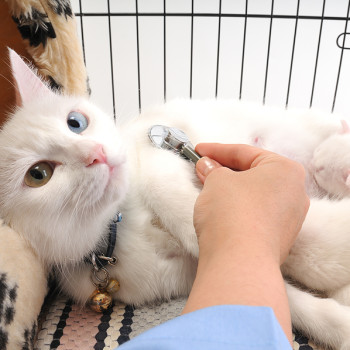If the animals in our communities, whether currently in a home, at a shelter or in the care of a rescue group, are going to be healthy and happy, we need the services of veterinarians. But bad relations between animal organizations and private practice veterinarians can put that outcome at risk.
In a survey published in DVM360, 35 percent of veterinarians reported supporting animal shelters while feeling shelters didn’t support them in return, while only 2 percent of animal shelters shared that view.
At the same time, 30 percent of shelters said they support veterinarians, but only 5 percent of veterinarians say they feel supported by shelters.
Whatever the facts of the situation, those divergent opinions are creating a fertile ground for misunderstanding. If one-third of each group feels they’re giving more than they’re getting, there’s a profound lack of information flow between the two camps.
For example, if shelters believe they’re supporting veterinarians, what are they doing for them? Is it something that actually does help veterinarians, or is it just something like vouchers for low-cost spay/neuter services, that often hurt veterinarians more than help?
If veterinarians believe they’re supporting shelters, what are they doing for them? Are they providing low-cost services to community members to keep pets in their homes, for instance? If so, does the shelter know they’re doing it?
These are not small issues. Many veterinarians are reluctant to publicize what they’re doing to help pets in their community because they believe it will cause them to be inundated with requests for more help. Others believe it’s a form of bragging, and are unwilling to “blow their own horn.” It’s therefore easy to think they’re doing nothing, despite a recent survey that found more than 90 percent of all veterinarians are providing free or low cost services and products to animals whose owners are in need and homeless pets.
On the other hand, veterinary trade groups that oppose low cost spay/neuter clinics, such as the Alabama State Board of Veterinary Medical Examiners, have done incalculable harm to the reputation of private practice veterinarians in the eyes of the public as well as of shelters.
And hanging over it all is the contentious issue of shelters operating veterinary hospitals that are open to the public. Many veterinarians see such hospitals, especially if they’re not limited to people who can’t afford veterinary care, as a form of unfair competition due to the advantages available to nonprofits.
Since this nation cannot achieve its goal of saving all healthy and treatable pets without the support of veterinarians in the community as well as shelter veterinarians, and since the growing popularity of shelter adoption means more and more of their patients will come from shelter backgrounds, one thing is clear: We need to heal this divide. And a good place to begin is by talking to each other.
Also of interest:
Changing the way animal shelters and veterinarians work together
A new way for rescue groups and veterinarians to work together
Veterinary publication says working with rescue groups is good business
Are shelters and private practice veterinarians on the same side?

